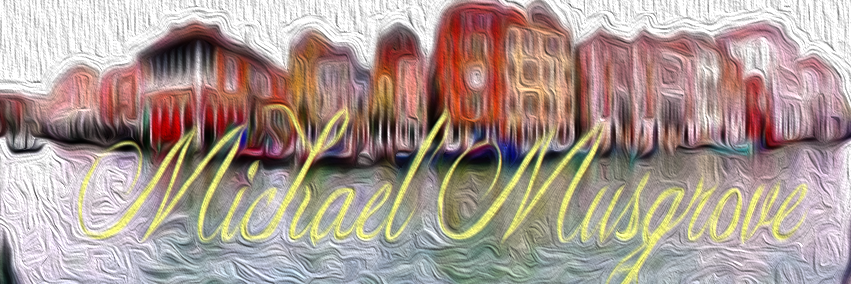Yes, WordPress is a Cult
I recently got into a discussion on Twitter with Joost DeValk, the creator of one the most downloaded WordPress plugins ever, WordPress SEO by Yoast. It’s an awesome plugin and he’s been very successful in marketing it over the years. Like many people that are household names in WordPress, and not unlike WP itself, he was working on the right thing at the right time. I like Joost, and am not bashing him personally whatsoever, and I’m not even stating a cult is a bad thing, necessarily. To each their own. But he, and others, don’t seem ready to face facts and accept reality. Possibly due to pride, or some other reason such as relinquishing individuality and uniqueness. I’m no psychiatrist and don’t claim to be. But they are in serious denial if they claim WP isn’t a cult.
He spent the weekend at WordCamp USA, 2017 which was in nearby Nashville, TN this year. He hauled himself all the way over from Norway or Sweden or which ever nordic country he hails from. On his own dime, of course. WordCamps are weekend meetings of WordPress “fans” who gather to talk WP, attend a string of lectures, and hand out swag and drink a lot of beer together. It’s also primarily used to recruit and retain WordPress cult members. WordPress meetups are basically the same thing, and are held monthly all over the world. WordCamps are held annually, and are bigger deals, with “stars” of the WordPress world. My first WordCamp included Pippin Williamson who also is well-known in the “WordPress world.” I’ve attended quite a few WordCamps. Some valuable, some quite a waste of time for my level of experience. But I do enjoy helping others learn the ins and outs of the program and scene. It’s easy for someone who’s worked on it for years, like me, but can be intimidating for newcomers.
The definition of a cult, before I go any further, according to Merriam-Webster is:
A situation in which people admire and care about something or someone very much or too much.
There’s usually a religious aspect connected to it, perhaps like Scientology, but there doesn’t have to be. And it’s usually held together by some dominant, often charismatic individual. Such as the recently passed Charles Manson, for his little cult back in 1960’s California. Or the Branch Davidians, whose members and their children met an ugly ending thanks to Bill Clinton and Janet Reno. The association of such men gives the term “cult” negative overtones. But it’s not necessarily a group of evil, crazy people. It’s a group of people/community that is simply obsessed with something to a rather unhealthy point, basically. That point is the source of the debate, I suppose.
WordPress, which I’ve been involved in for around 8 years now, completely fits the definition. When I mentioned that it was a cult, Joost’s reaction was that he resented the comment. My tweet was a response to a Tweet of his exclaiming “Ask not what WordPress can do for you, but what you can do for WordPress.” For no particular reason except a knee-jerk disagreement. In fact, his very next comment, which was his defense, was that he gives 20% of his earnings, no small sum to be sure, every year to WordPress because he believes in the product and community, proving my point exactly.
I’m not in the business of convincing self-deniers to change their views, but I dare anyone to provide a reason WordPress isn’t a cult. I’m ready to debate that stance quite easily. And I have an open mind; I can be convinced otherwise if given compelling enough reasons to the contrary. But I can’t think of any. If you know of any, by all means leave them in the comments section.
It relies heavily, almost exclusively, on the efforts, time and resources of people to sustain it, for free to the foundation. Donations always accepted, of course. It’s a billion-dollar plus business to be sure, so it’s not like the non-profit is in any more need than the NFL for funds. Matt Mullenweg, one of the developers who began WordPress 14 years ago along with another man, Mike Little, who never ever is mentioned or really credited for some reason, is the relatively reclusive and softspoken CEO who appears at WordCamps and is treated like a celebrity. The “leader” if you will, who hapily sits on many Silicon Valley boards for his extensive business acumen. I don’t support his managerial tactics much, which I’ve expressed many times. That’s not sour grapes, and has no influence on this essay, however, I assure you. I believe I’m entitled to that opinion, and as an MBA and experienced businessman, have somewhat of a credible background in that area. I’ve conversed with Matt when once applying for a job at Automattic, the self-named offshoot business of WordPress along with several others such as Audrey Capital, all quite profitable due to the association with WordPress. Whether they would be so successful without that association is anyone’s easy guess. Incidentally, Matt explained the reason he wasn’t interested in having me join his company was due to not being involved enough with open-source. I hadn’t donated enough of my time and resources and paid my dues, in other words, even though I was highly qualified if not over-qualified for the position. No big deal.
But the people/developers that get wrapped up in WordPress get REALLY wrapped up in it. Tattoos of the logo on themselves, expensive treks across the US and even abroad to attend weekend WordCamps, etc… It becomes their lives. The unhealthy obsession earlier described.
WordPress, being open-source, is the real key to it’s success. Open source is the invitation to pour a lot of your life into sustaining it, along with thousands of others toiling away at keyboards around the world. At no charge to anyone but the donors themselves.
WordPress’ popularity is being in the right place at the right time, in my opinion. Same with a lot of internet businesses and businesspeople. I’m also willing to debate that statement at any time, and have a long list of resons to back the sentiment.

I recognized the fact it’s a cult several years in and noticed the very cultish characteristics that WordPress and its community has, and largely removed myself. I personally don’t like being that attached to something in that manner, as it almost represents an addiction. I still use the product and keep up with the development of it closely though for business reasons.
But contributing to core and hanging out in the forums to answer people’s questions a la WP customer service, is something I personally don’t have the time or desire to do. Mention that fact to hardcore WordPressers, and you’ll get a quick tsk-tsk.
Automattic, the company I mentioned that “runs” WordPress used to brag that it only employed around 100 people for a billion dollar-plus business. That is literally unheard of in the legitimate business world. That was also before Matt went on a hiring and M&A binge, scooping up some of the best individual devs and 3rd party companies around before competition hired them, which is what rich companies with no real organic growth strategies do, such as WordPress/Automattic. The lines between all the entities is legally definied, but quite blurred otherwise. The ability to acquire the best and most valuable because of all the charity it receives and, in fact, expects. If there was a WP commune in San Francisco, I assure you there would be a line of people around the block to move in. Many WP developers do, in fact, live a nomadic lifestyle. They’re young and unattached, except to WordPress.
In any case, facts are facts, and whether peole want to admit it or not, WordPress most definitely is a cult. That makes, and has donated to it, a lot of money by it’s generous contributors. If you’re interested in joining, attend a WordCamp and you’ll be happily recruited. You’ll be responsible for paying admission, lodging, travel, etc… however for the privledge of using the open-source code, however. Or you can sponsor a WordCamp, because sponsors are also required. There are many ways you can repay.


